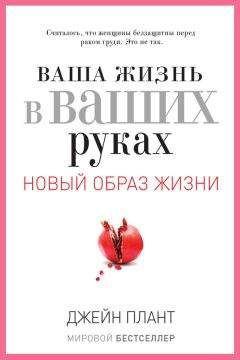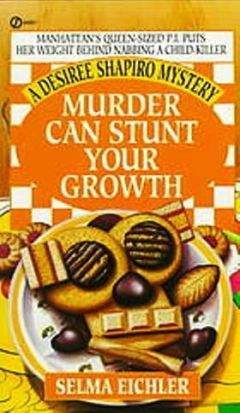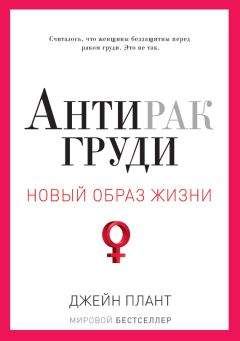46. McCusker, R.H., 1998. Controlling Insulin-Like Growth Factor Activity and the Modulation of Insulin-Like Growth Factor Binding Protein and Receptor Binding. J Dairy Sei, 81, 1790–1800.
47. Simpson and others. Effect of exogenous estradiol on plasma concentrations of somatotropin, insulin-like growth factor 1, insulin-tike growth factor-binding protein activity and metabolites in ovariectomised Angus and Brahman cows. http://www.nal.usda.gov/ttic/tektran/glimpse/data/000007/ 75/0000077539.html
48. The Globe and Mail 3l July 1999.
49. Hendler, S.S., 1990. The Doctors' Vitamin and Mineral Encyclopaedia,, Simon and Schuster, New York.
50. Hetzel, B.S., and Maberly, G. E., 1986. Iodine, In: Trace Elements in Human and Animal Nutrition, Fifth Edition, Mertz, W, Ed. Academic Press, Inc, London.
51. Eskin, B.A., Shuman, R., Krouse, Т., Merion, J.A., 1976. Rat mammary gland atypia produced by iodine blockade with perchlorate. Cancer Res, 35(9), 2332–2339. See also Eskin, B.A., 1978. In: Inorganic and Nutritional Aspects of Cancer. Schrau-zer, G.N., ed., 293–304, Plenum Press, New York. This reference is quoted in Grouse, Robert G., Pories, Walter J., Bray, John T. and Mauger, Richard L., 1983. Geochemistry and Man: Health and Disease 1. Essential Elements. In: Applied Environmental Geochemistry. Thornton, I., Ed. London, Academic Press, 267–308.
52. Johnson, C., 1999, Environmental controls in iodine deficiency disorders (TDD), Earthworks, 9 November, p. 3, British Geological Survey.
53. Simopoulos, A.P., 1991. Omega-3 fatty acids in health and disease and in growth and development. Am J Clin Nutr., 54, 438–463.
54. Simopoulos, A.P., 1991. Omega-3 fatty acids in health and disease and in growth and development. Am J Clin Nutr., 54, 438–463. See also Fernandes, G. and Venkatraman, J.T., 1993. Role of omega-3 fatty acids in health and disease. Nutr. Res., 13, S19-S45.
55. Reported in the London Evening Standard, 17 March 1989. See also Wilier W C., 1994, Micronutrients and cancer risk. Am J Clin Nutr, 59, (suppl), 1162S-1165S.
56. Hunter, David J. and Willett, Walter C., 1993. Diet and Body Build: Diet, Body Size and Breast Cancer, Epidemiologic Reviews, 15, 1, 110–132.
57. Ingram, A. J. and others, 1995. Effects of a Flaxseed and Flax Oil Diet in a Rat – 5/6 Renal Ablation Model. American Journal of Kidney Disease, February 25, 2, 320–329.
58. Obermeyer, WR., Musser, S.M., Betz, J.M., Casey, R.E., Pohland, A.E. and Page, S.W, 1995. Chemical studies of phytoestrogens and related compounds in dietary supplements – flax and chaparral. Proceedings of the Society for Experimental Biology and Medicine. See also Obermeyer, WR., Warner, C., Casey, R.E. and Musser, S., 1993, Flaxseed lignans isolation metabolism and biological effects. Fed Am Soc Exp Biol, J., A863.
59. Dupont, J., White, P.J., Johnston, K.M. and others, 1989. Food safety and health effects of canola oil .J Am Coll Nutr., 8, 360–375.
60. Kohlmeier, L, and others, 1997. Adipose tissue trans fatty acids and breast cancer in the European Community Multicenter Study on Antioxidants, Myocardial Infarction, and Breast Cancer, Cancer Epidemiol. Biomarkers prev., 6, 9, 705–710.
61. Koletzko, B., 1992. Trans fatty acids may impair biosynthesis of long-chain polyunsaturates and growth in man. Acta Paedia-tr., 81, 302–306.
62. Trichopoulos, Dimitrios, Li, Frederick, P. and Hunter, David J, 1996. What Causes Cancer? Scientific American, Special Issue, What you need to know about Cancer, September, 275, 3, 80–85.
63. Forbes, Alec, 1984. The Bristol Diet, Century.
64. Ingram, A.J., Parbtani, A., Clark, WF, Spanner, E., Huff, M.W, Philbrick, D.J. and Holub, B.J., 1995. Effects of flaxseed and flax oil diets in a rat-5/6 renal ablation model. Am J Kidney Dis., February, 25, 2, 320–329.
65. Lee, S. and others, 1999. Monitoring of Drinking Water in terms of Natural Organic Matter and Disinfection By-products. Proc 2nd Intern. Symp. On Advanced Env. Monitoring, Kwangju, Korea.
66. Herrick, D., 1996. Cryptosporidium and Giardia: Should you be concerned? Water Well Journal, 50, 4, 49, 44–46.
67. Jankun, Jerzy, Seiman, Steven H., Swiercz; Rafal and Skrzypc-zak-Jankun, Ewa, 1997. Why drinking green tea could prevent cancer. Nature, 387, 15 June, p. 561 see also: Greenwald, Peter, 1996. Chemoprevention of Cancer, Scientific American, Special Issue, What you need to know about Cancer, September, 275, 3, 96–99.
68. Jankun, Jerzy, Seiman, Steven H., Swiercz, Rafal and Skrzypc-zak-Jankun, Ewa, 1997. Why drinking green tea could prevent cancer. Nature, 387, 15 June, p. 561.
69. Campion, K., 1986. Vegetarian Encyclopaedia, Century Hutchinson Ltd, London.
70. Jankun, Jerzy, Seiman, Steven H., Swiercz, Rafal and Skrzypc-zak-Jankun, Ewa, 1997. Why drinking green tea could prevent cancer. Nature, 387, 15 June, p. 561.
71. http://research.kib.ki.se/e-uven/public/51419.html
72. Lockwood, K., Moesgaard, S., Hanioka, T. and Fotkers, K., 1994. Apparent partial remission of breast cancer in chigh risk’ patients supplemented with nutritional antioxidants, essential fatty acids and coenzyme Q10. Mol aspects Mod, 15, Suppis, 231–240.
Lockwood, K., Moesgaard, S, and Folkers, K., 1994. Partial and complete regression of breast cancer in patients in relation to dosage of coenzyme Q10. Biochemical and Biophysical Research Communications, 199, 3, March 30, 1504–1508. Lockwood, K., Moesgaard, S., Yamamoto, T. and Folkers, K., 1995. Progress on therapy of breast cancer with vitamin Q10 and the regression of metastases. Biochemical and Biophysical Research Communications, 212. 1, 172–177.
1. Gerhard Schrauzer, Ph.D., of the University of California cited in Better Nutrition, Nov, 1989, v 51, no. 11, p. 14 (2).
2. Redhook., April, 1989, v 172, n6, p. 96 (5).
3. Spallholz, J.E., Stewart, J.R., 1989. Advances in the role of minerals in immunobiology. Center for Food and Nutrition, Texas Tech University, Lubbock 79409. Biol Trace Elem Res Mar, 19 (3) pp. 129–151.
4. Archives of Environmental Health, September/October 1976.
5. Knekt, Paul, and others, 1988. Selenium Deficiency and Increased Risk of Lung Cancer. Abstract of paper read at the Fourth International Symposium on Selenium in Biology and Medicine, Tubingen, West Germany, July.
6. Reinhold, U., and others, 1988. Selenium Deficiency and Lethal Skin cancer. Abstract of paper read at the Fourth International Symposium on Selenium in Biology and Medicine, Tubingen, West Germany, July.
7. Lockwood, K., Moesgaard, S., Hanioka, Т., and Folkers, K., 1994. Apparent partial remission of breast cancer in chigh risk’ patients supplemented with nutritional antioxidants, essential fatty acids and coenzyme Qi0. Mol Aspects Med, 15, Suppls, 231–240. See also: Lockwood, K., Moesgaard, S. and Folkers, K., 1994. Partial and complete regression of breast cancer in patients in relation to dosage of coenzyme Q10. Biochemical and Biophysical Research Communications, 199, 3, 30 March, 1504–1508. See also: Lockwood, K., Moesgaard, S„Yamamoto, T. and Folkers, K., 1995. Progress on therapy of breast cancer with vitamin Q10 and the regression of metastases. Biochemical and Biophysical Research Communications, 212, 1, 172–177.
8. Monographs on the Evaluation of the Carcinogenic Risk of Chemicals to Man, 1982. Geneva: World Health Organization, International Agency for Research on Cancer, 1972 – present. (Multivolume work). V29, p. 282. See also Osihi, Shinshi, 1990. Effects of phthalic acid esters on testicular mitochondrial functions in the rat Archives of Toxicology, March, V64 n2, p. 143 (5).
9. Holland, J C., 1996. Cancer’s Psychological Challenges. Scientific American, Special Issue, What you need to know about Cancer, September, 275, 3, 158–161.
10. Heason, P., Deep Relaxation available from 37 Tollerton Lane, Tollerton, Nottingham.
11. Based on Holland, J C., 1996. Cancer’s Psychological Challenges. Scientific American, Special Issue, What you need to know about Cancer, September, 275, 3, 158–161.
12. Trichopoulos, Dimitrios, Li, Frederick, P. and Hunter, David J., 1996. What Causes Cancer? Scientific American, Special Issue, What you need to know about Cancer, September, 275, 3, 80–85.
13. Levy, Len, 1998, Biomed II: Exposure to low-level benzene, p. 76. In: Institute for Environment and Health, Annual Report. 100 pp.
14. Pearson, J.K., 2000. The Air Quality Challenge, American Society of Automotive Engineers and HMSO.
15. North Atlantic Treaty Organisation, 1988. International Toxicity Equivalency Factor (I-TEF) method of risk assessment for complex mixtures of dioxins and related compounds. Pilot study on international information exchange on dioxins and related compounds. CCMS Report Number 176, Environmental Protection Agency, Washington DC, USA. Department of Health, 1995. Statement by the Committee on Toxicity of Chemicals in Food, Consumer Products and the Environment on the US EPA draft, health assessment document for 2,3,7,8-tetrachlorodibenzo-p-dioxin (TCDD) and related compounds. Dept of Health, London.
16. EPA Dioxin Reassessment Summary, 1994 4/94 – Vol. 1, CERI/ORD Publication Centre, USEPA.
17. MAFF, 1997. Dioxins and PCBs in retail cows’ milk in England. Food Surveillance No. 136, December, Ministry of Agriculture, Fisheries and Food, London.
18. Tanabe, S., 1988. PCB Problems in the Future: Foresight from Current Knowledge. Environmental Pollution, 50, 5-28.
19. Department of the Environment, 1989. Dioxins in the Environment Pollution Paper, No. 27, HMSO, London.
20. MAFF, 1997. Dioxins and Polychlorinated Biphenyls in Fish Oil Dietary Supplements and Licensed Medicines. Food Surveillance Information Sheet, № 106, Ministry of Agriculture, Fisheries and Food, London.
21. MAFF, 1996. Dioxins In Human Milk. Food Surveillance Information Sheet, № 88, Ministry of Agriculture, Fisheries and Food, London.
22. MAFF, 1996. Polychlorinated Biphenyls in Food – UK Dietary Intakes. Food Surveillance Information Sheet, № 89, Ministry of Agriculture, Fisheries and Food, London.
23. Environmental Endocrine Disruptors: A Handbook of Property Data, John Wiley and Sons.
24. Shin, R.J. and others, 1999. Development of a bioassay system for identification of Endocrine Disrupters. Proc 2nd Intern. Symp. On Advanced Env. Monitoring, Kwangju, Korea.
25. Soto, A.M. and others, 1992. An in culture bioassay to assess the estrogenicity of xenobiotics. In: Chemically-induced alterations in sexual and functional development. The wildlife/ human connection. Vol. 21, Colborn T.C, Clement ed., Princeton Scientific Publishing, 295–309. See also: Soto, A.M. and others, 1995. The E-SCREEN assay as a tool to Identify estrogens: An update on estrogenic environmental pollutants. In: Estrogens in the Environment, Environmental Health Perspectives,113–122.
26. Davis, Devra Lee, Axelrod, Deborah, Osborne, Michael P. and Telang, Nitin Т., 1997. Environmental influences on Breast Cancer Risk, World Resources Institute, Washington, DC, USA, Science and Medicine. May/June.
27. Colborn, Т., Dumanoski, D. and Myers, J.P., 1996. Our Stolen Futures, Dutton, Penguin Books, USA.
28. Dyson, Т., 1999. Prospects for feeding the world. British Medical Journal, 319, 988–991.
29. Reuters, 8 October 1998.
30. McMurry, Laura М., Oethinger, Margaret, Levy, Stuart B., 1998. Triclosan targets lipid synthesis. Nature, 394, 6693, 531–532.
31. Trichopoulos, Dimitrios, Li, Frederick, V. and Hunter, David J, 1996. What Causes Cancer? Scientific American, Special Issue, What you need to know about Cancer, September, 275, 3, 80–85.
1. Campbell, T.C. and Junshi, C., 1994. Diet and chronic degenerative disease perspectives from China. Am. J Clin. Nutr, 59, Suppl., 11 535-11 615.
2. Packham, D.E., 1999. Impacts of Commercialisation and Privatisation on Capabilities for Scientific Advice, Oracles or Scapegoats? IPMS Conference notes. October.
3. Packham, D.E., 1999. Impacts of Commercialisation and Privatisation on Capabilities for Scientific Advice, Oracles or Scapegoats? IPMS Conference notes, October.
4. Association of University Teachers. Efficiency Gains or Quality Losses? 1996 (Based on DfEE and Welsh Office figures).
5. Bok, D., 1990. In: Universities and the Future of America, Duke University Press, Durham NC.
6. Glantz, S.A., 1996. Times Higher Education Supplement, 6 September, p. 15. and Glantz, S.A.,Slade, J., Bero, L.A., Hanauer, P. and Barnes, D.E., 1996. The Cigarette Papers, University of California Press.
7. Packham, D.E., 1999. Impacts of Commercialisation and Privatisation on Capabilities for Scientific Advice, Oracles or Scapegoats? IPMS Conference notes, October. See also: Packham, David and Tasker, Mary, 1997. Industry and the academy – a Faustian contract. Industry and Higher Education, April, 85–90.
8. Packham, D.E., 1999. Impacts of Commercialisation and Privatisation on Capabilities for Scientific Advice, Oracles or Scapegoats? IPMS Conference notes, October. See also: Packham,
David and Tasker, Mary, 1997. Industry and the academy– a Faustian contract. Industry and Higher Education, April, 85–90.
9. Jasanoff, S., 1997. Civilization and madness: the great BSE scare of 1996. Public Understand. Sei. 6, 221–232.
10. McMichael, A.J. and Powles, J.W, 1999. Human numbers, environment, sustainability and health. British Medical Journal, 319, 9 October, 977–980.
1. www.nlm.nih.gov/medlineplus/ency/article/002919.htm
2. McKenna, Claire, 2002. UK has highest reduction in deaths from lung and breast cancer. BMJ, 325, 63.
3. Irwig, Les, 2006. Evaluating new screening tests for breast cancer. BMJ, 332, 678–679.
4. Anon, 2006. Screening for breast cancer. BMJ, 332, 499–500.




